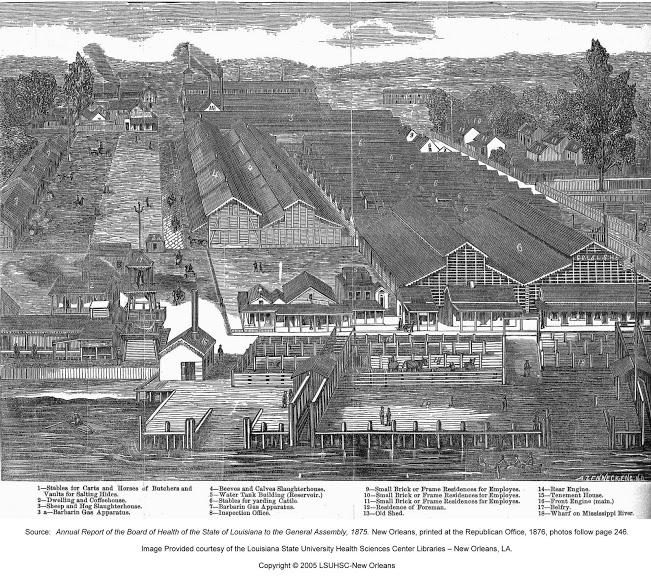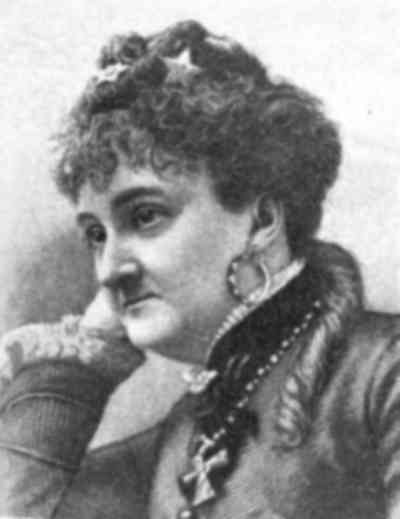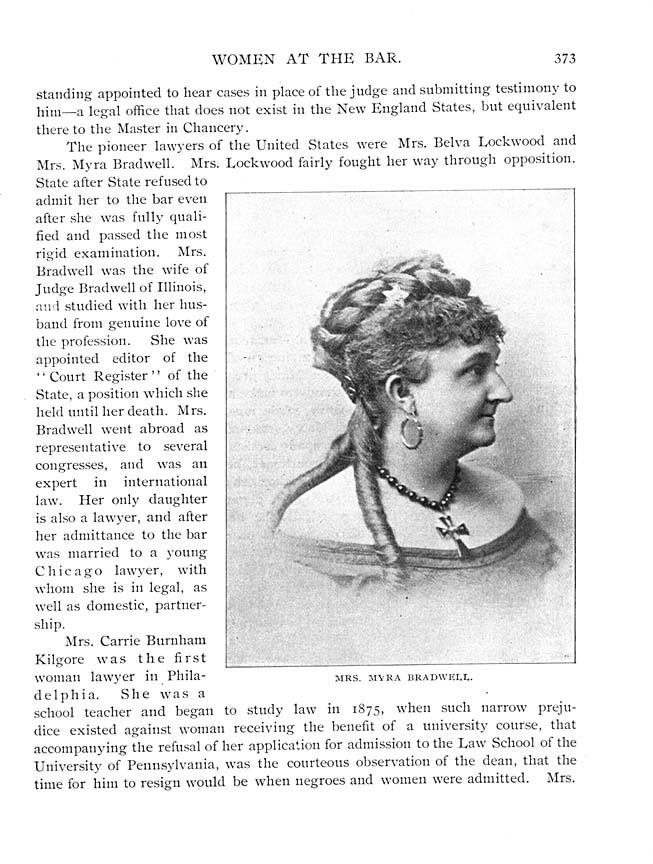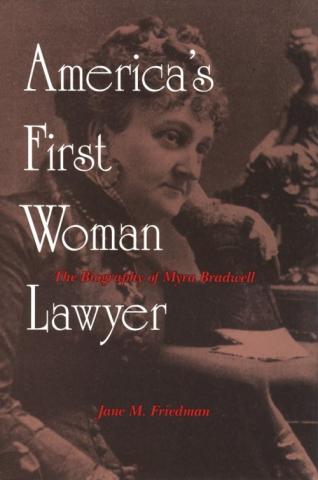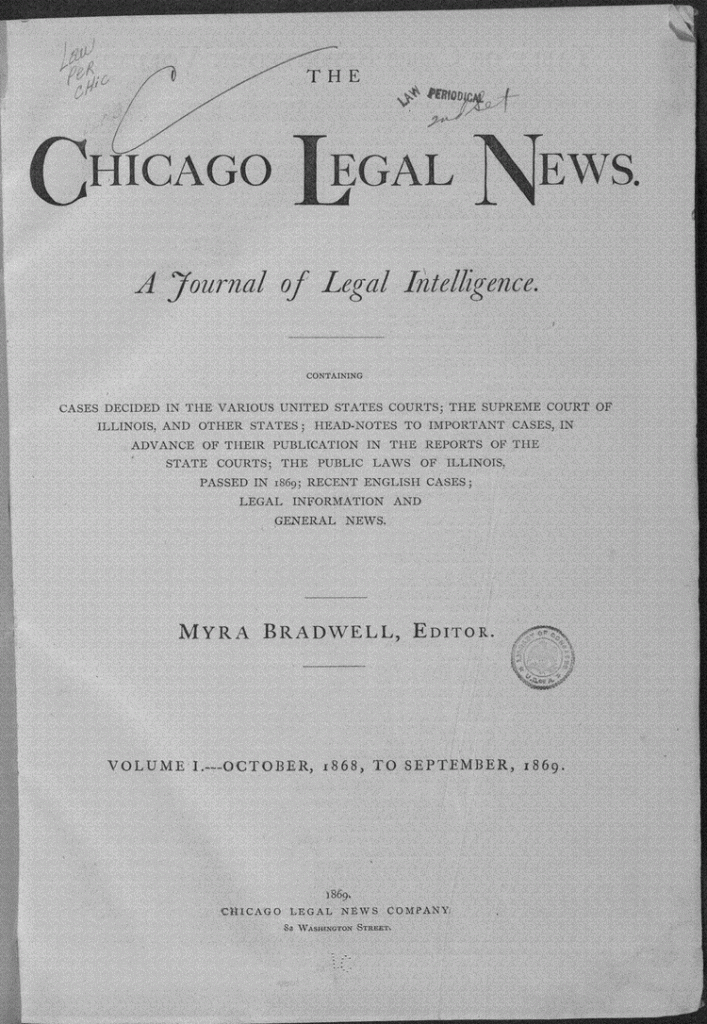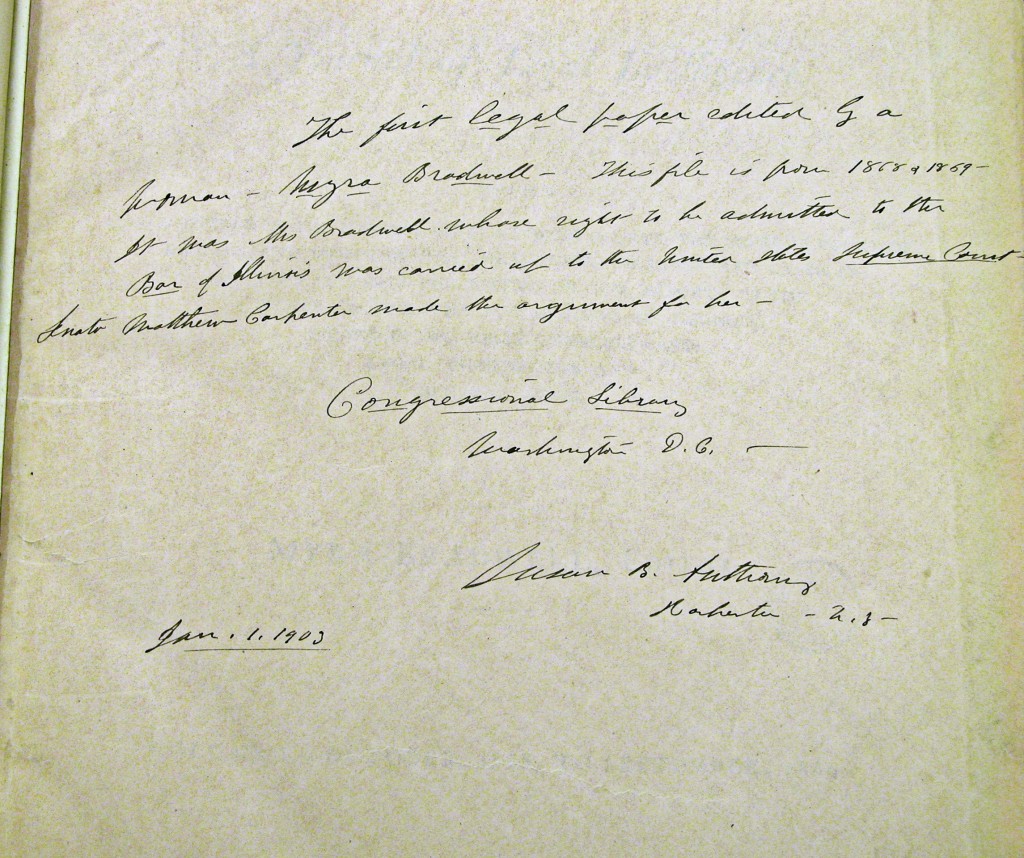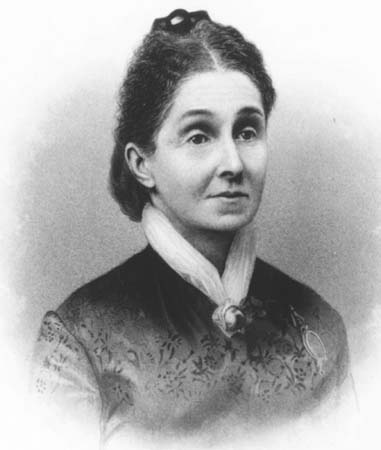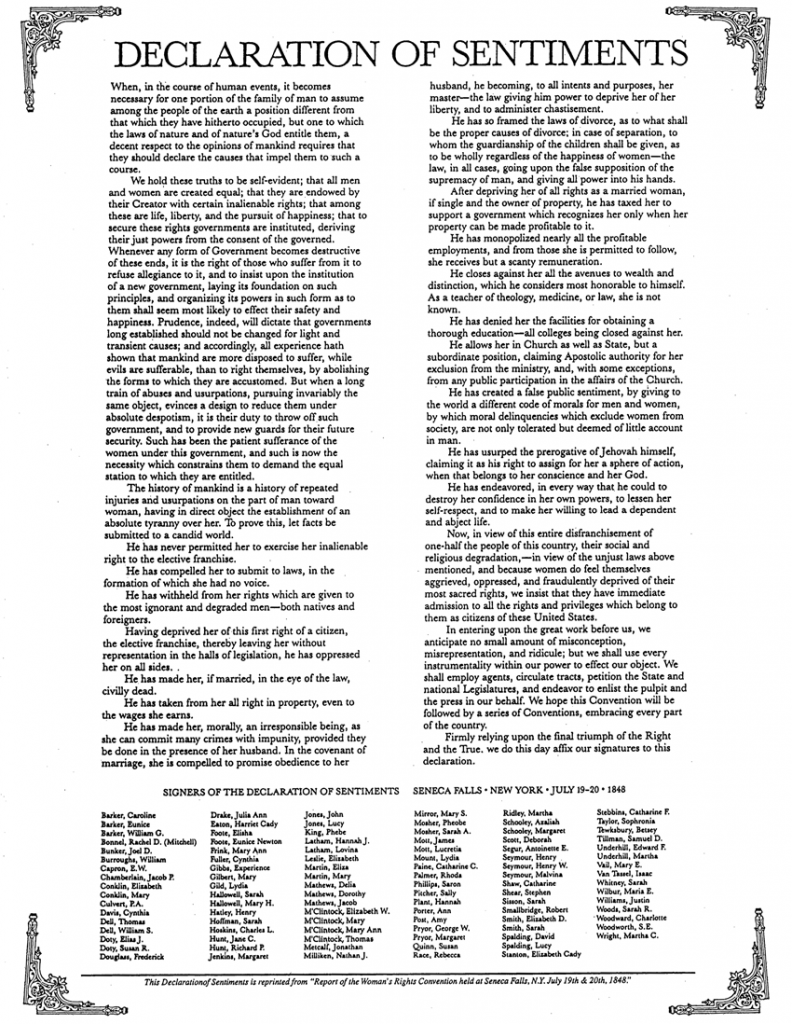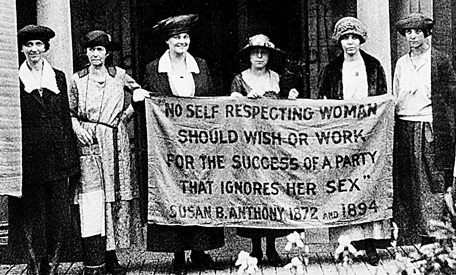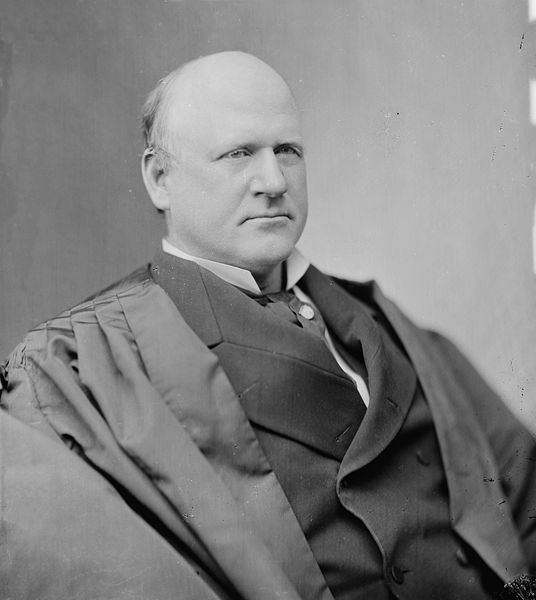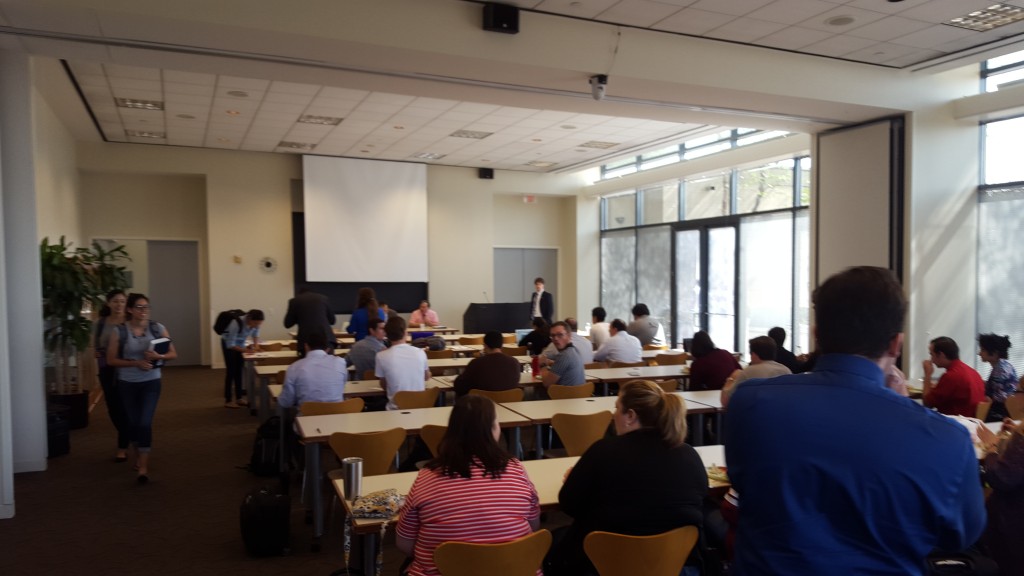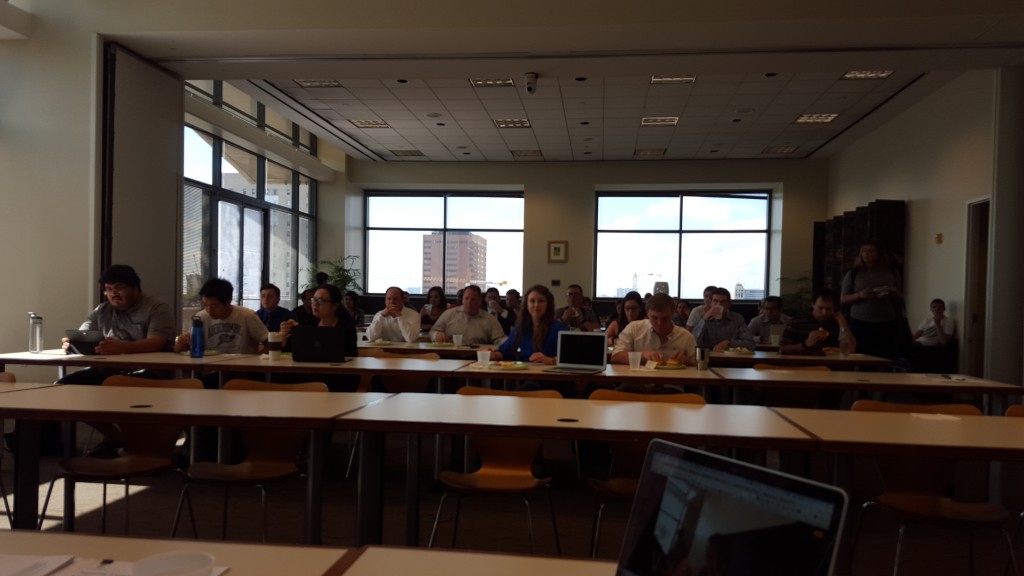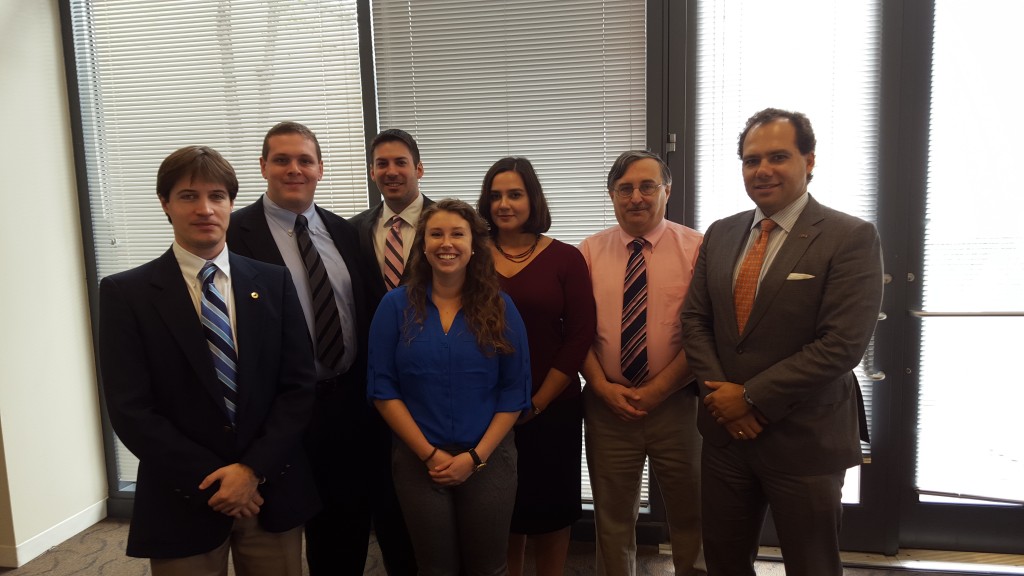The lecture notes are here.
The Reconstruction Amendments
- The Text, Structure, and History of the Reconstruction Amendments (1265-1266).
- The Thirteenth Amendment (1266-1267).
- The Fourteenth Amendment (1267-1271).
- Slaughter-House Cases (Field, J., dissenting) (1281-1285) and (Bradley, J., dissenting (1285-1287) (Skim majority but read the dissents).
- Notes (1288-1291).
- Early Interpretation of Equal Protection (1292).
- Bradwell v. Illinois (1292-1295).
- Minor v. Happersett (1295-1301).
- Strauder v. West Virginia (1301-1306).
- Enforcement Powers (1306-1307).
- The Civil Rights Cases (1307-1318).
- Notes (1318-1322).
The Slaughter-Houses Cases
Here is a wood-cutting of the New Orleans Slaughterhouse.
Bradwell v. Illinois
This is Myra Bradwell, who sought admission to the Illinois Bar, leading to the Supreme Court’s decision in Bradwell v. Illinois.
Bradwell would become the editor of the Chicago Legal News, the first legal publication in the United States edited by a woman. The publication launched in 1868. Here is the first issue.
The Library of Congress has a copy of the first volume of the Chicago Legal News, donated by Susan B. Anthony. Even cooler, it includes a hand-written note in Anthony’s hand, which alludes to Bradwell v. Illinois.
It reads:
The first legal paper edited by a woman – Myra Bradwell – This file is from 1868 & 1869 – It was Mrs. Bradwell whose right to be admitted to the Bar of Illinois was carried up to the United States Supreme Court. Senator Matthew Carpenter made the argument for her.
Congressional Library
Washington DCSusan B. Anthony
Rochester – N.Y-Jan. 1.1905
Minor v. Happersett
This is Virginia Louise Minor, who attempted to vote in an election. Her case wound its way all the way to the Supreme Court, which held in Minor v. Happersett that voting was not a privilege or immunity of citizenship.
This is the 1848 Declaration of Sentiments, authored by Elizabeth Cady Stanton, and other leading suffragists at the Seneca Falls Convention in July of 1848. Relevant to our discussions are the provisions concerning coverture, and the inability of women to own, use, and dispose of property. Among the other “”injuries and usurpations on the part of man toward woman”:
- He has made her, if married, in the eye of the law, civilly dead.
- He has taken from her all right in property, even to the wages she earns.
- He has so framed the laws of divorce, as to what shall be the proper causes of divorce, in case of separation, to whom the guardianship of the children shall be given; as to be wholly regardless of the happiness of the women—the law, in all cases, going upon a false supposition of the supremacy of a man, and giving all power into his hands.
The 19th Amendment, which prevented states from denying the franchise to woman, was ratified on August 18, 1920.
Strauder v. West Virginia
Taylor Strauder, a black man, was convicted of murder by an all-white jury. Strauder challenged his conviction because West Virginia excluded all African-Americans from the jury. The Supreme Court held that this exclusion based on race violated the Equal Protection Clause.
The Civil Rights Cases
The Grand Opera House in New York CIty, formerly known as Pike’s Opera House, was located on the Norhtwest Corner of 8th Avenue and 23rd Street, in Chelsea. It was was shut down in 1960.
Maguire’s Opera House, formerly known as San Francisco Hall, was a three-story theater on Washington Street between Kearny and Montgomery in San Francisco.
I was not able to find photographs of Nichol’s Inn in Jefferson City, MO, the Topeka Inn in Topeka, Kansas, or the Tennssee Parlor Car.
This is Justice John Marshall Harlan I, who authored the solo dissent in the Civil Rights Cases.
